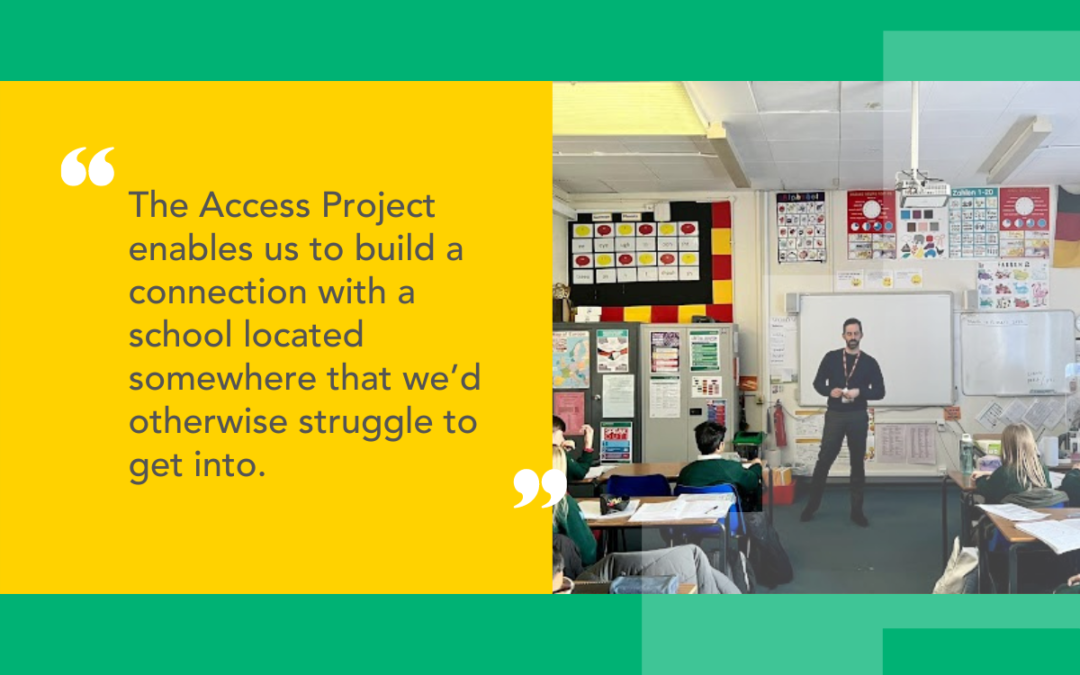The Access Project has partnered with SOAS University of London for over two years. They are one of our school partners, and are matched with Wood Green Academy in the West Midlands.
About the partnership
Julien Boast, the Access, Participation and Student Success Manager at SOAS explains that the decision to partner with us was based around building a close relationship with a school. “The Access Project enables us to build a connection with a school located somewhere that we’d otherwise struggle to get into,” he told us. “Our students predominantly come from London and the South East – so our partnership with Wood Green Academy helps us to tackle that.”
As part of their relationship, SOAS regularly attend Steering Committee meetings with the school. They have also been one of our trip partners for the past two years – which has seen approximately 140 Year 10 students visiting the university (albeit virtually due to the pandemic). Staff, students and alumni from the university have also been encouraged to become volunteer tutors at The Access Project – with 20 so far applying in the past year.
On March 15, Julien got to visit the school in person for the first time. “The partnership is in its second year – but it’s been impacted by COVID,” he explains. “We’re really excited to further grow our impact as we get out of COVID.”
Impact on the school
Aman, who is in Year 11 at Wood Green Academy, was very positive about the impact that The Access Project’s programme is having on his life. “The tutors really know what they’re doing so it’s helped me with my grades but will also help me make an informed decision about what I want to study in the future.”
Naomi Bruton, who is the Programme Supervisor at Wood Green Academy, said: “The University Access Officer, Penny, is such a good support, and the conversations she has with the students have more of an impact than it might do always coming from a teacher. The students having the opportunity to sit for a whole hour with Penny through the mentoring sessions and getting that one-to-one support really helps them. The skills they learn in the workshops are focused and relevant. This has especially helped during the pandemic as they have missed gaining a lot of those skills in school.
“As the programme has been in school for a number of years now, we’re getting younger siblings of alumni asking if they can also be part of the programme!”
“Everything is robustly evaluated”
“The Access Project supports attainment raising and progression to higher education institutions in an evidence-based way,” Julien said. “Everything is robustly evaluated. This ties into our own access and participation plan.”
Julien also raised how important it was to SOAS that we have an in-school mentor (a University Access Officer) based in each of our schools. “Your core programme is responsive to the local context, and young people get the chance to build a relationship with their University Access Officer.”
When asked why he would recommend partnering with The Access Project to other universities, Julien said: “It can be difficult for universities to partner with schools in a way that meets the school’s needs and is long-term enough to have an impact – both at the individual level and at the school level. One of the real strengths of The Access Project is that young people are involved for two-to-four years. You see sustained impact that is robustly evidenced.”

